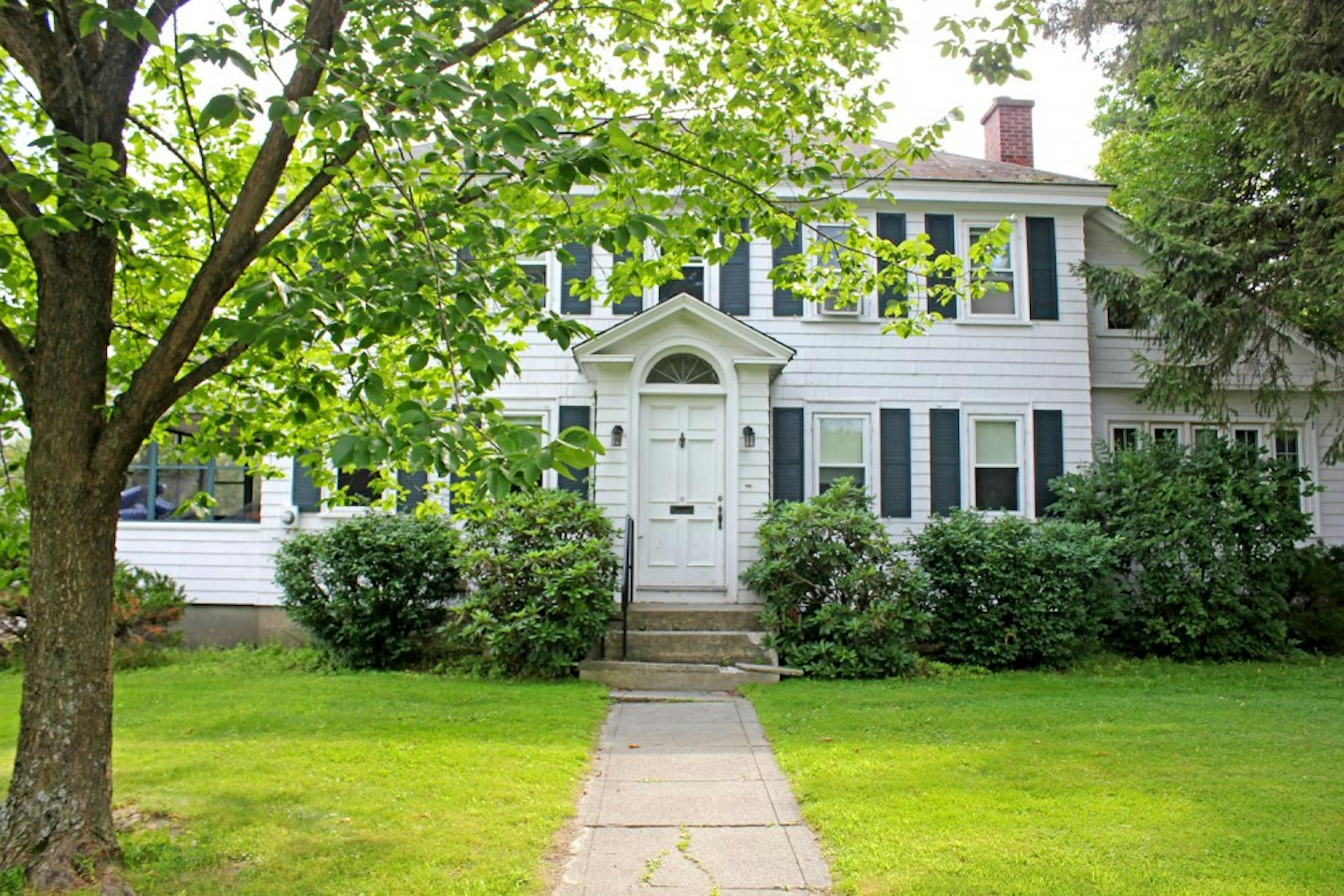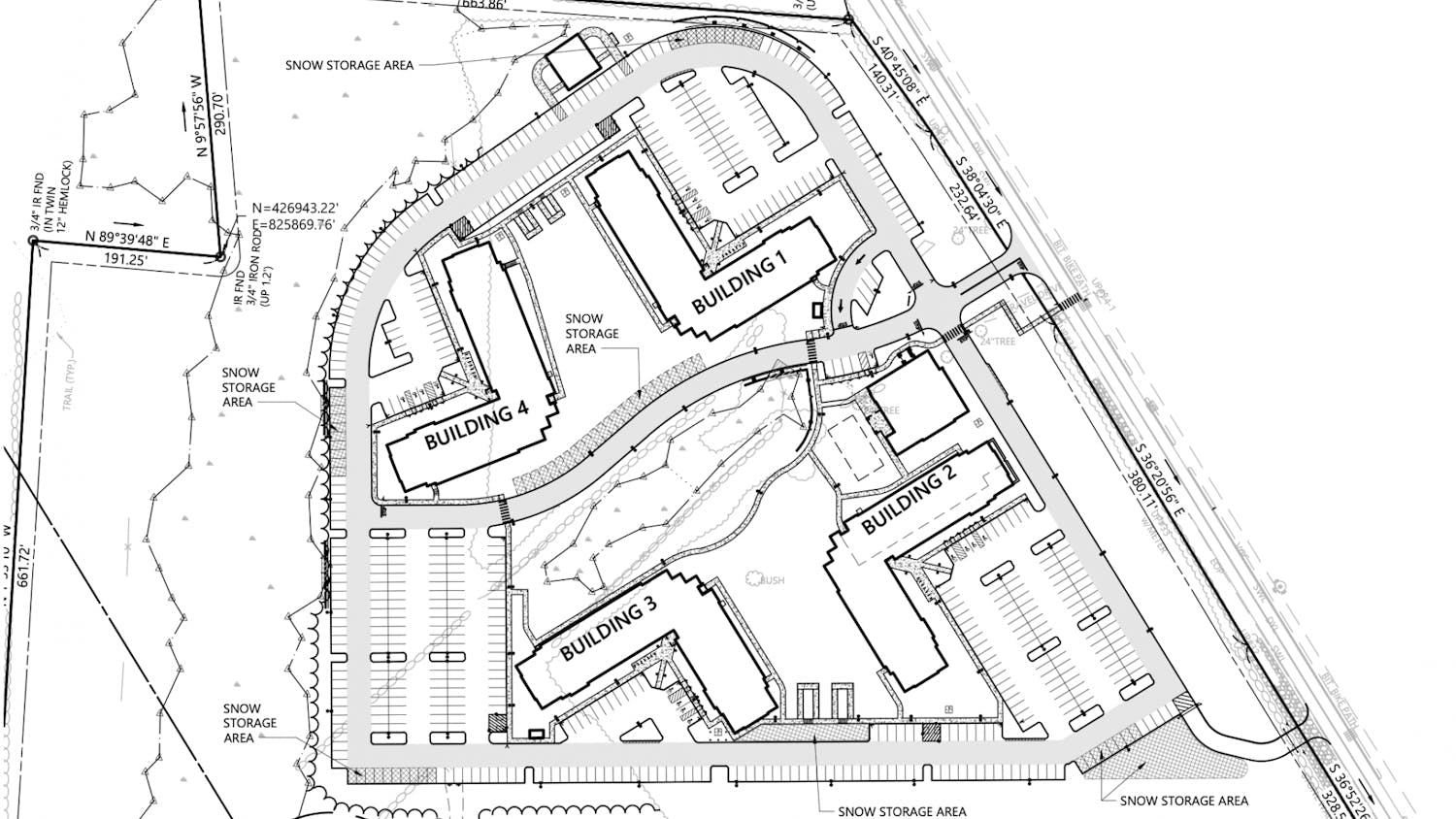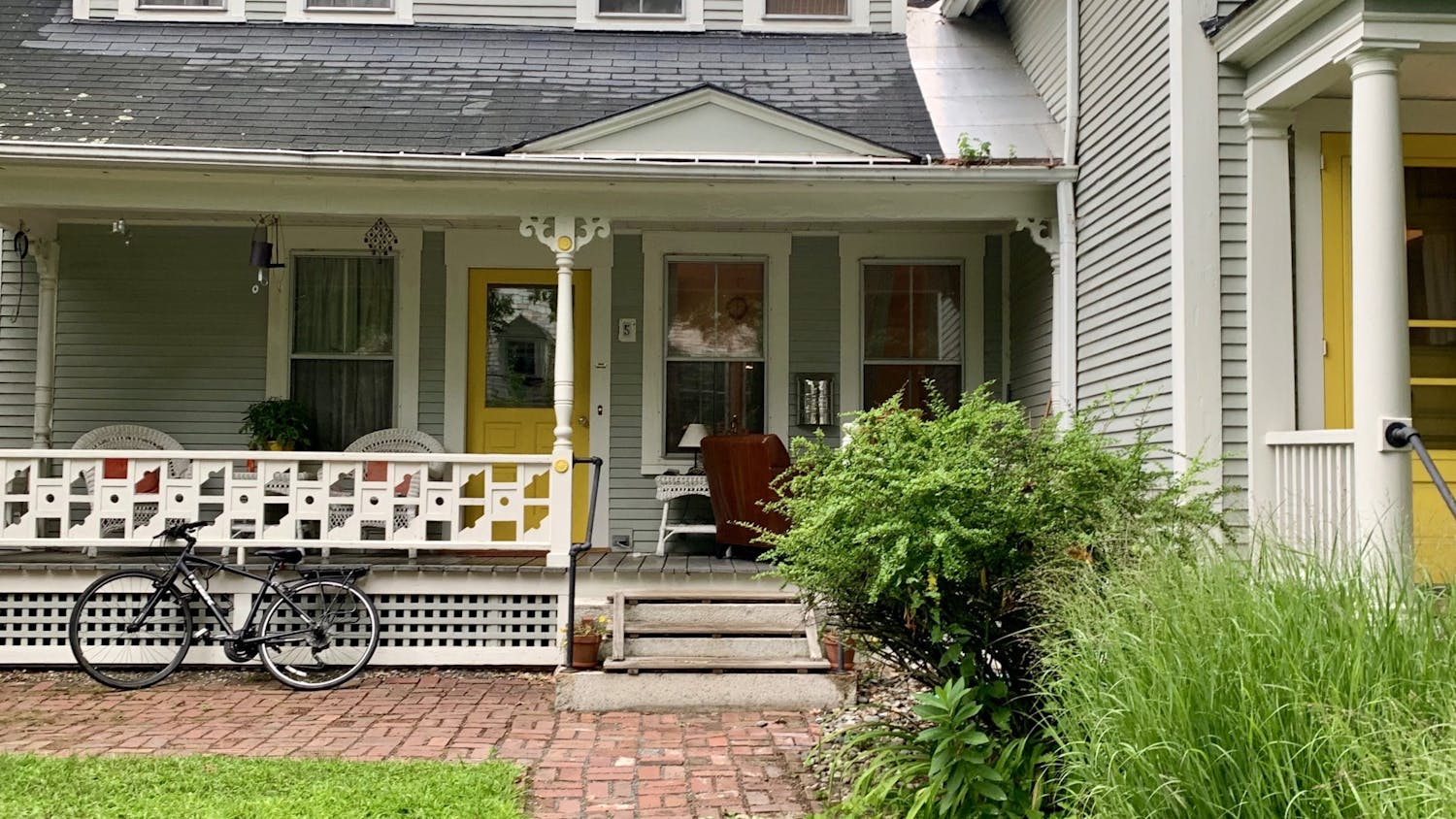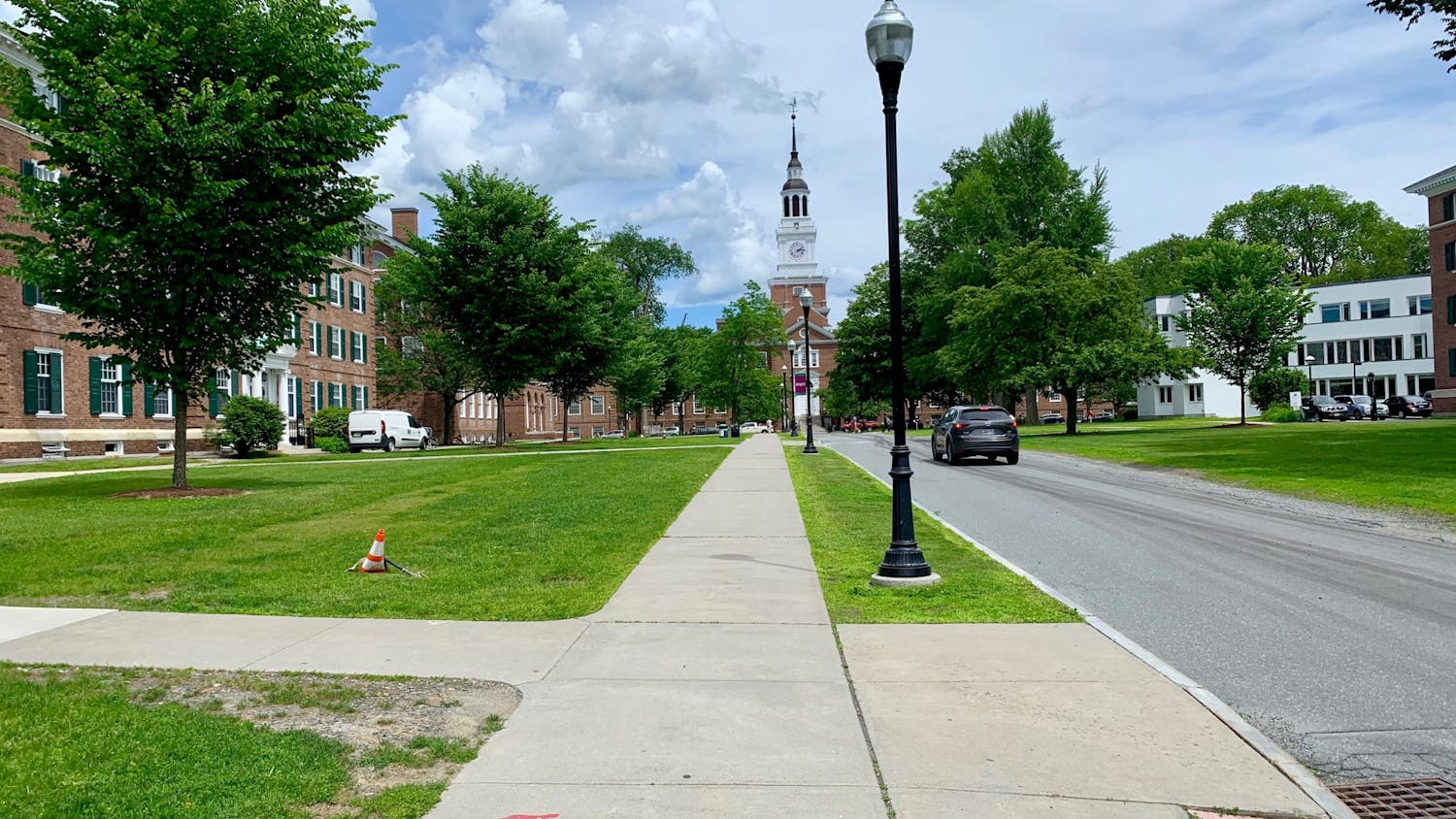A regional housing shortage in the Upper Valley and the resulting high cost of living has posed an array of challenges for students in search of off-campus housing. In recent months, the College has placed a limit on the number of students allowed in dorms due to COVID-19 concerns, which has further increased demand for housing off campus.
With rental vacancy rates in Hanover and Lebanon at around 1%, options for students looking to live near campus are limited, and available rental units generally come with a hefty price tag. According to data published by the Council for Community and Economic Research, the cost of living in Hanover in 2019 ran 43% higher than the national average. This presents particular challenges for student renters, who often live on a College stipend or income from part-time employment.
Property manager Jolin Kish ’88 said rental prices in Hanover are expensive because the market is “competitive” and there are “just a limited number of homes.”
“Downtown Hanover is a pretty limited geographical area, which is what keeps the cost so expensive in the first place for real estate, because it's such a limited supply,” she said.
According to a 2018 survey of 395 graduate students conducted by Dartmouth’s Graduate Student Council, nearly half of Dartmouth graduate students paid more than $800 a month for housing, despite more than 80% of respondents indicating that their “optimum” level of monthly rent fell below $800. Twenty percent of students paid more than $1,000 in rent, despite less than 3% of graduates indicating that this cost fell within their preferred range.
Eva Childers GR’22, a Ph.D. student in experimental and molecular medicine who serves as Graduate Student Council president, said that most graduate students opt for off-campus housing because Dartmouth’s on-campus graduate housing options run around $1,000 per bedroom. This totals half of the monthly $2,000 stipend from Dartmouth that Ph.D. students earn.
With the stated goal of alleviating this housing crunch and offering affordable graduate student housing, Dartmouth recently hired a contractor to build and operate a 638-bed housing development near Dartmouth-Hitchcock Medical Center. Rent at this facility will range from $1,000 to $1,400 per bedroom.
Alberto Ruíz Th’21, a Ph.D. student and academic chair of the Graduate Student Council, said that while he considered Dartmouth’s plan to build a new housing complex “better than nothing,” he sees the College’s housing options — including those offered at the new facility — as unaffordable for most graduate students.
Ruíz, who supports his family financially, said that because he could not afford housing in the area when he first arrived on campus, he lived out of his car for his first three months at Dartmouth.
“My plan was to try to live out of my car for the first two years that I was here, because when I looked at my finances and my family finances at the time, that’s how I didn’t run through my savings and still finished the program,” Ruiz said.
Ruíz — who still sends home $600 a month — said that his family’s financial circumstances “changed,” and he now is able to afford rent at an apartment in White River Junction, Vermont, where he currently lives.
However, he said that Dartmouth’s lack of housing options regularly leaves graduate students forced to live in housing they cannot afford.
“No financial advisor would ever tell you to spend more than 50% [of your income] on housing … and yet the school often corners graduate students to have to do that,” Ruíz said.
Ruíz and Childers both expressed concern that despite graduate students having first priority for the new complex, the cost of units would ultimately keep graduate students away, leaving most of the facility’s rental units to be occupied by DHMC employees, who are next in line to rent units.
“You [could] give me first pick to the next Tesla — I still can't afford it,” Ruíz said.
During pre-pandemic focus group sessions held by Dartmouth and the contractor managing the property, Michaels Student Living, attending graduate students said that the rental units were out of their price range, according to Childers and Ruíz.
Childers said that Michaels took this feedback about cost into consideration and redesigned the units, increasing the number of bedrooms to four, taking away additional bathrooms and redesigning the community center. Even after removing amenities, however, Childers said the rent “really didn’t change.”
Ruíz added that he considers the “only path forward” to be lobbying Dartmouth for an increase in the graduate student stipend and called on Dartmouth to see graduate housing as an “investment” rather than a “for-profit operation.” Childers also called for Dartmouth to increase the graduate student stipend.
The Dartmouth Real Estate Office wrote in an email to The Dartmouth that it is committed to addressing concerns about affordable housing by “working with vital communities to develop strategies” and increasing “community support for affordable housing.” Specifically, the email mentioned the new facility, noting that Dartmouth was working to “maximiz[e] multi-bedroom units, efficient construction methodologies and proper operations.”
Though undergraduates have a wider range of on-campus living options at their disposal, those who choose to live off campus described steep costs, inconsistent housing conditions and difficulties with their landlords.
Ella Ryan ’18 rented a three-bedroom apartment from Kish her senior year. According to Ryan, the rent for the previous tenants was $600 but rose to $900 when she moved in. While she noted that Kish was responsive about certain issues, such as her request for an exterminator when there was a mouse problem, Ryan felt like she “paid too much for the place [she] was living in.”
The Dartmouth Real Estate Office wrote that while it lists available local properties online for students, the office “does not inspect the condition of listed properties, does not evaluate the character or business practices of listed landlords and makes no representation about either.”
Ryan attributed the cost raise on Kish’s rental to high demand in Hanover and to there not being “a ton of options.” In addition, she added that many students do not self-advocate because “maybe they don’t care, since they’ll only be there a year” or they “don’t realize how bad the quality is.”
“I think the issue is that the quality of the housing is quite poor because students don't really know their rights, if they even have any,” she said.
According to Kish, who leases around 600 units to students, both the cost of College housing and the value of properties she rents influence her price points.
Kim Chewning, director of the Lebanon-based Real Property Management Beacon, said that while her company conducts market surveys of housing in the Upper Valley to determine the price of rentals, this survey does not generally include College rental rates. Chewning added, however, that as a former employee at Dartmouth’s Real Estate Office, she does take the cost of rental rates at Dartmouth into account in determining prices.
Janice Chen ’19, who also rented from Kish, voiced concern about landlord monopolies around Dartmouth.
“When there are two or three main people who essentially have a monopoly on student housing, they feel like it gives them the power to set the rental price at whatever they want,” she said.

Daniel Modesto ’24 is the News executive editor. He is from Brooklyn, New York, and is a Native American and Indigenous Studies major modified with Latin American, Latino and Caribbean Studies.




